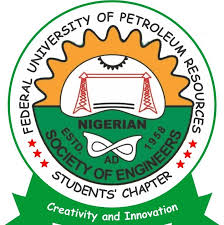Dr Musliu Agoro, the immediate past Chairman, Nigerian Society of Engineers (NSE), Lagos Branch, has urged government across all levels to invest in local engineers in a bid to discourage capital flight.
Agoro made the appeal at the society’s 2020 Annual General Meeting/Public Lecture/Award and Induction ceremony on Thursday, in Lagos.
The event is one of the activities lined up for the celebration of its Engineering Week.
The theme of the lecture is: “The Role of Engineering Professionals in Rebuilding Nigeria’s Economy Post-COVID-19.
According to Agoro, there is the urgent need for governments, especially at the federal level to strive to enforce local content on major engineering projects in the country as professionals in the sector are qualified.
“All aspects of jobs that we have expertise on should not be given to foreigners because we are not doing any good to our economy. Our people must invest and have trust in Nigerian engineers and patronise us. If you do this, the money remains here but if you chose to patronise the foreign ones, there is of course, capital flight. This is discouraging and need to be looked into. We have so many capable engineers but lack of patronage is a challenge. We can do it. Let them just give us a trial. We have a huge number of unemployed youths in the country who could also benefit from major projects, such as the rail project, if the job is given to local engineers”.
The chairman, however, said there was also an urgent need for the country’s engineering professionals to equally assist the government in promoting safety practices among the populace.
According to him, this will help in stopping further spread of the current global health challenge.
“The NSE is expected to rise to the challenge occasioned by the outbreak of the Coronavirus. The pandemic has brought about new ways of doing things. Our government has been forced to introduce containment measures such as lockdown, which has adversely affected socio-economic activities”.
Agoro urged the Federal Government to release the COVID-19 bail-out grant to state governments to strengthen the war against the pandemic and to increase the capacity of relevant health institutions to train health workers.
The chairman also implored government to enjoin the health institutions to procure locally essential items such as Personal Protective Equipment (PPE), as well as automatic and manual hand washing machines among others.
Mr Titi Omo-Ettu, an engineer, a telecommunication consultant and one of the guest speakers, said the COVID-19 was symbolic and a mere reminder to all that there was a job to do and a huge gap to fill.
He argued that the pandemic did not destroy the country’s economy, noting that the economy had long been destroyed before COVID-19 emergence.
“An environment that has no thriving manufacturing is certainly not an economy but at best a market. Engineering professionals are to provide solutions that are appropriate and affordable. It could be more, but no less. The pandemic has brought out several unidentified realisations. The first is the fact that we can be productive even when we choose to operate remotely and yet collectively. Especially for those whose works do not involve turning the wheels of the factory or farm machines. We have now known that our brains, especially for the engineers, do not need to co-locate to deliver solutions”.
“The second is that some normally required solutions did not appear to us as needs until COVID-19 came calling. That is to say, we have always required ventilators and IR thermometers for medicare. We have always required to wash our hands. Sanitise may be an additional requirement, but certainly not to wash our hands. What we should therefore turn our attention to is how we are going to build production processes that will make engineering professionals turn all of these into industry level production lines and to also domesticate our solutions”.
He said Nigeria was a middle-income country with emerging market and a mixed economy, adding that in spite of its huge economic potential, it had taken a place as one of the 10 poorest countries in the world.
Omo-Ettu said the development was quite disappointing as there was no reason for the country to belong to the class of the poorest countries of the world.
He identified lack of proper engagement between the government and the citizenry and poor human capital development as some of the challenges facing the country’s economy.
Another guest speaker, Mr Olaolu Ogunduyile, said the country’s engineering professionals could do more to champion the course of development of the economy by “walking the talk”.
The Chief Executive of Kenol added that innovations, inventions and creativity must all be harnessed to make progress.
“It is time for us to be serious on deviation from a mono-economy system as a nation. There are lots of opportunities in the various sectors of the economy which engineering professionals can explore and exploit for the benefit of all”.
Highlight of the event was the award for iconic contribution to the growth and development of the engineering profession to Ogun Deputy Governor, Mrs Noimot Salako-Oyedele.
Other awardees in the same category were the guest lecturers at the event, Omo-Ettu and Ogunduyile.
There was also the induction of new members of the association via zoom.
Stop Capital Flight, Engage Local Engineers, NSE Urges Nation’s Leadership
- Advertisement -
- Advertisement -
- Advertisement -
- Advertisement -
- Advertisement -

